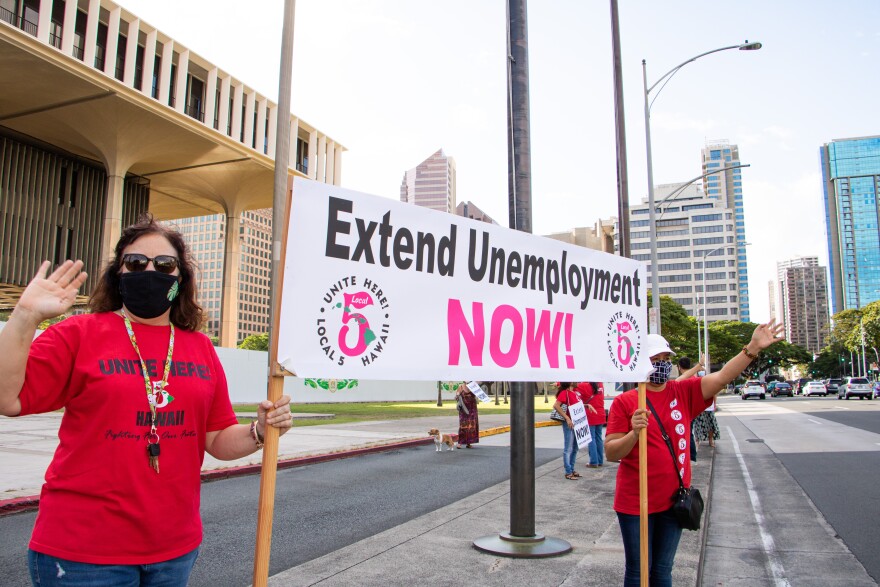Joy Melegrito has worked in hotels for seven years, spending the last two at The Kahala Hotel & Resort.
Like a lot of hotel workers, she was furloughed in 2020, and had difficulty getting her unemployment benefits.
"I was really scared to get stuck in late payments for my bills," Melegrito said. "It's really stressful to think that I cannot pay my bills right away."
Melegrito's husband was able to work during the pandemic, but his hours were cut to two or three days a week. She says she was constantly worried about the bills piling up and the thought her family may get evicted.
But for a brief period this year, there was a glimmer of hope. From March to August, domestic travelers returned to the islands in droves. The state hospitality industry had to ramp up quickly in order to meet the demand — bringing employees, like Melegrito, back.
She says she was called back to work in May, at the beginning of the summer travel season.
"When I went back to work, I felt happy because I thought it's going to be forever, or I mean continuously getting the schedule," she said.
During that time, she says she was able to catch up on her bill and rent payments — as well as being able to afford more food for her husband and daughter.
But that didn't last long.
In August, a spike in new reported COVID-19 cases and hospitalizations led Gov. David Ige to urge visitors not to arrive in the state.
On Aug. 22, Melegrito says she saw her work schedule change.
"When I saw that I'm getting an on-call schedule, it's like 'Oh my God, I end up getting worse schedule again.' And then, I get bills to pay again, and then it's really stressful."
Melegrito says an on-call schedule means she may get called to work for a couple days within a week.
The state's largest hospitality worker union, Unite Here! Local 5, says roughly 30% of their members have either been furloughed again or had their hours cuts since August.

While August to November is traditionally a shoulder season for state tourism, businesses and hoteliers have seen a dramatic decline compared to other slower seasons before the pandemic.
In a statement, representatives at The Kahala Hotel acknowledged slower business and reduced worker hours — saying "...we understand the significant hardship that our employees and hospitality partners face, and hope for a return to normalcy as soon as possible."
For Melegrito, she's not only concerned about her situation, but she's also worried about her coworkers. She says she's currently assisting one of her coworkers get rental assistance from the City and County of Honolulu.
"I'm so worried about her, because she's thinking about being homeless, and there's [no] food to eat," she said.
While the state's Act 57 mandates landlords and tenants seek mediation before any eviction process — there may be little hope due to the expiration of federal pandemic unemployment assistance.
While the city still has its rental assistance program, Melegrito says she's concerned she may not get help. Primarily because the city's program caps its application windows, and it takes time to process those applications. That's time Melegrito may not have.
"Almost one month already that I haven't temped anything, or getting unemployment insurance," she said. "Only my husband's working two days, three days a week. And I'm three months behind my electric bill, and really, I'm so worried because I have a daughter."
In the meantime, Melegrito hopes state leaders will extend pandemic-related unemployment benefits.
A Department of Labor and Industrial Relations spokesperson says while the unemployment insurance program is a federal-state partnership, the state had no role in ending the programs or the authority to pay for extended benefits beyond the eligibility period.







